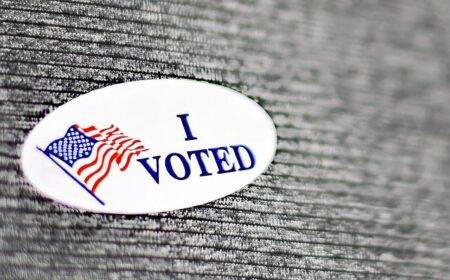The United States has announced its decision to withdraw once again from the United Nations Educational, Scientific and Cultural Organization (UNESCO), the White House confirmed on Tuesday. This move marks a renewed departure from the international body responsible for promoting global cooperation in education, science, and culture, amid ongoing concerns over governance and political bias. The decision follows a history of U.S. disengagement from UNESCO and highlights tensions in the country’s approach to multilateral institutions.
US Announces Withdrawal from UNESCO Citing Persistent Reform Concerns
The United States has officially declared its intention to withdraw from the United Nations Educational, Scientific and Cultural Organization (UNESCO) once again, citing ongoing concerns over the agency’s failure to implement necessary reforms. Senior White House officials emphasized that these reforms are critical to ensuring that the organization operates with transparency, efficiency, and impartiality. In their statement, they highlighted how persistent governance issues and perceived political biases undermine UNESCO’s credibility and effectiveness on the global stage.
Key points raised by U.S. representatives include:
- Lack of Accountability: Challenges remain in enforcing clear financial and operational accountability within UNESCO’s programs.
- Political Influence: Concerns over disproportionate political interference affecting the agency’s decision-making processes.
- Budgetary Constraints: The impact of continuous funding difficulties, partially tied to the U.S.’s prior withdrawal, which limits UNESCO’s capacity.
Below is a concise summary of the current status and implications:
| Aspect | Details |
|---|---|
| Effective Withdrawal Date | End of 2024 |
| Primary Reason | Ongoing reform concerns |
| Previous U.S. Status | Withdrew in 2018, rejoined in 2023 |
| Impact on UNESCO | Potential funding shortfalls & diplomatic strain |
Impact on Global Scientific and Cultural Collaboration Explored
The decision to withdraw from UNESCO once again places a spotlight on the fragile nature of international scientific and cultural collaboration. This move could hinder ongoing projects aimed at environmental protection, educational reform, and heritage preservation, where U.S. involvement has historically played a significant role. Key partnerships between American researchers and their global counterparts stand at risk, potentially slowing progress in crucial fields such as climate science, archaeology, and digital education initiatives.
UNESCO’s platform facilitates knowledge exchange that transcends political boundaries, fostering innovation and mutual understanding. The withdrawal may provoke challenges including:
- Reduced U.S. influence on global cultural policies
- Weakened funding for joint scientific ventures
- Diminished American access to UNESCO-supported data and networks
| Area | UNESCO Contribution | Potential U.S. Impact |
|---|---|---|
| Scientific Research | Global data sharing and collaboration | Loss of coordinated research opportunities |
| Cultural Preservation | Protection of world heritage sites | Reduced role in heritage decisions |
| Educational Programs | Development of UNESCO learning tools | Limited input in international educational standards |
Analysis of Previous US Withdrawals from UNESCO and Lessons Learned
The United States has a history of withdrawing from UNESCO, with notable exits occurring in the 1980s and most recently in 2018. These withdrawals were largely attributed to concerns over the agency’s perceived politicization and alleged anti-Israel bias. In each instance, the US administration cited inefficiencies and questioned UNESCO’s alignment with American diplomatic goals and values. The recurring pattern reflects a broader challenge in balancing national interests with multilateral commitments, often leading to complex diplomatic repercussions and debates over the agency’s relevance and reform needs.
Key Lessons from Past Withdrawals:
- Persistent calls for institutional reform within UNESCO led to temporary re-engagements, affirming the importance of diplomatic dialogue.
- Withdrawals have impacted US influence on cultural preservation, scientific cooperation, and educational initiatives globally.
- Alternatives to direct UNESCO involvement, such as bilateral programs, have been explored but with limited global reach.
| Year of Withdrawal | Main Cause | Diplomatic Outcome |
|---|---|---|
| 1984 | Perceived bias & budget concerns | Rejoined in 2003 after reforms |
| 2018 | Political issues, Israel recognition | Reduced influence in agency policies |
Strategies for Maintaining Influence in UNESCO Initiatives Post-Withdrawal
In the wake of the United States’ decision to withdraw from UNESCO, experts suggest that maintaining influence within global cultural and scientific realms will require a more nuanced approach. Leveraging bilateral partnerships and strengthening ties with like-minded nations remain critical. Additionally, the U.S. can continue to actively contribute through non-governmental organizations (NGOs) and private sector initiatives that align with UNESCO’s mission—serving as alternative yet impactful channels for engagement. By amplifying the role of American experts and institutions in international forums outside UNESCO, the U.S. can sustain a voice in key debates on cultural preservation and scientific cooperation.
Key strategies also emphasize the necessity of robust digital diplomacy and targeted funding for UNESCO-designated heritage sites and scientific projects. Proactive involvement in multilateral networks and forums, alongside strategic communication campaigns, will further mitigate the loss of direct influence. These efforts could be broken down into three focal areas:
- Private sector collaboration: Encouraging corporate sponsorships and partnerships that back global cultural initiatives.
- Academic and scientific engagement: Supporting research institutions to maintain participation in UNESCO-related projects.
- International cultural exchanges: Promoting bilateral and regional cultural programs that reinforce American values and heritage globally.
| Strategy | Primary Benefit | Impact Area |
|---|---|---|
| Private Sector Collaboration | Alternative funding channels | Heritage Preservation |
| Academic & Scientific Engagement | Continued expert influence | Scientific Research |
| International Cultural Exchanges | Strengthened bilateral ties | Cultural Diplomacy |
In Conclusion
As the United States prepares to exit UNESCO once more, the move marks a significant shift in its approach to international cultural and scientific cooperation. The decision underscores ongoing tensions regarding the agency’s policies and governance, illustrating broader challenges in U.S. engagement with multilateral organizations. Observers will be watching closely to see how this withdrawal impacts UNESCO’s initiatives and the United States’ role on the global stage moving forward.




